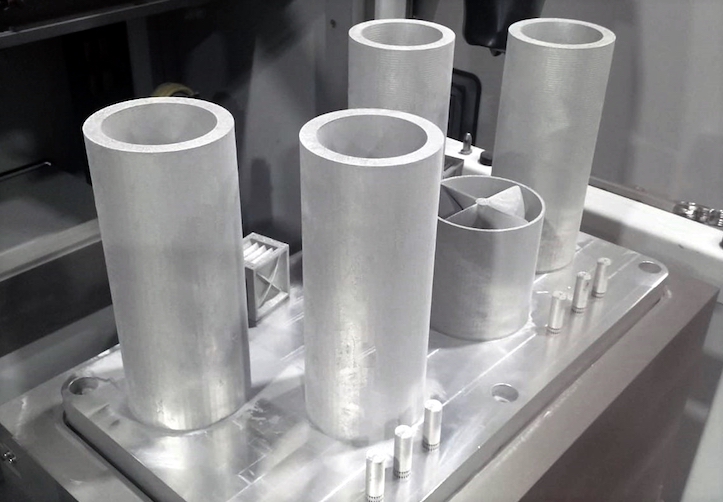 Aluminium Materials Technologies and The Advanced Materials and Processing Laboratory (AMPLab) at the University of Birmingham collaborate to further the understanding in the metallurgy of additively manufactured high strength, high temperature A20X aluminium alloy.
Aluminium Materials Technologies and The Advanced Materials and Processing Laboratory (AMPLab) at the University of Birmingham collaborate to further the understanding in the metallurgy of additively manufactured high strength, high temperature A20X aluminium alloy.
Aluminium Materials Technologies and The University of Birmingham today announce a collaboration to deepen the understanding of the metallurgy of additive manufactured A20X aluminium alloy. Following many successful projects by the university to build sample parts for other interested parties, the two organisations are working together to look further into the characteristic properties of the alloy produced via laser powder bed fusion (LPBF), and directed energy deposition (DED). They are also investigating the effects on changes in composition, heat treatments, and AM process parameters on the properties in additively manufactured components.
A20X™ has been developed to be a family of patented high strength aluminium-copper alloys, used mainly in the aerospace and high-end motorsports sectors. The A20X™ alloy group includes the Metallic Materials Properties Development and Standardisation (MMPDS) approved A205 casting alloy, FIA approved A205/F1 casting alloy, silver free A207 casting alloy, and 2A05 (A205) powder, and 2B05 (A205/F1) powder for laser powder bed fusion AM applications. The highly refined microstructure, resulting from a unique solidification mechanism, leads to near fully isotropic properties that provide greater strength, fatigue and thermal characteristics compared to other alloys.
Martin McMahon, Business Development Director for Aluminium Materials Technologies said, “A20X has been successfully adopted into fully qualified production of aerospace components via additive manufacture. The reliability of the A205 alloy has been proven to be more than adequate in high strength, high ductility and high operating temperature applications, so we are now building on our extensive development programmes, to create an even greater understanding of the fundamental metallurgy of the AM alloy. We look forward to making further announcements about the findings from this collaboration with such a prestigious research group.”
Moataz Attallah, Professor of advanced materials processing and director of AMPLab at the School of Metallurgy & Materials at the university, added, “The University’s experience with this alloy dates back to the early days of its introduction as a metal powder for additive manufacturing, and we have carried out many successful projects characterising the physical properties of candidate parts. So now we are working closely with AMT to dig deeper into what makes this alloy so unique, and through our selection of AM tools and vast array of materials characterisation techniques, we are in a great position to make that happen.”
www.A20X.com